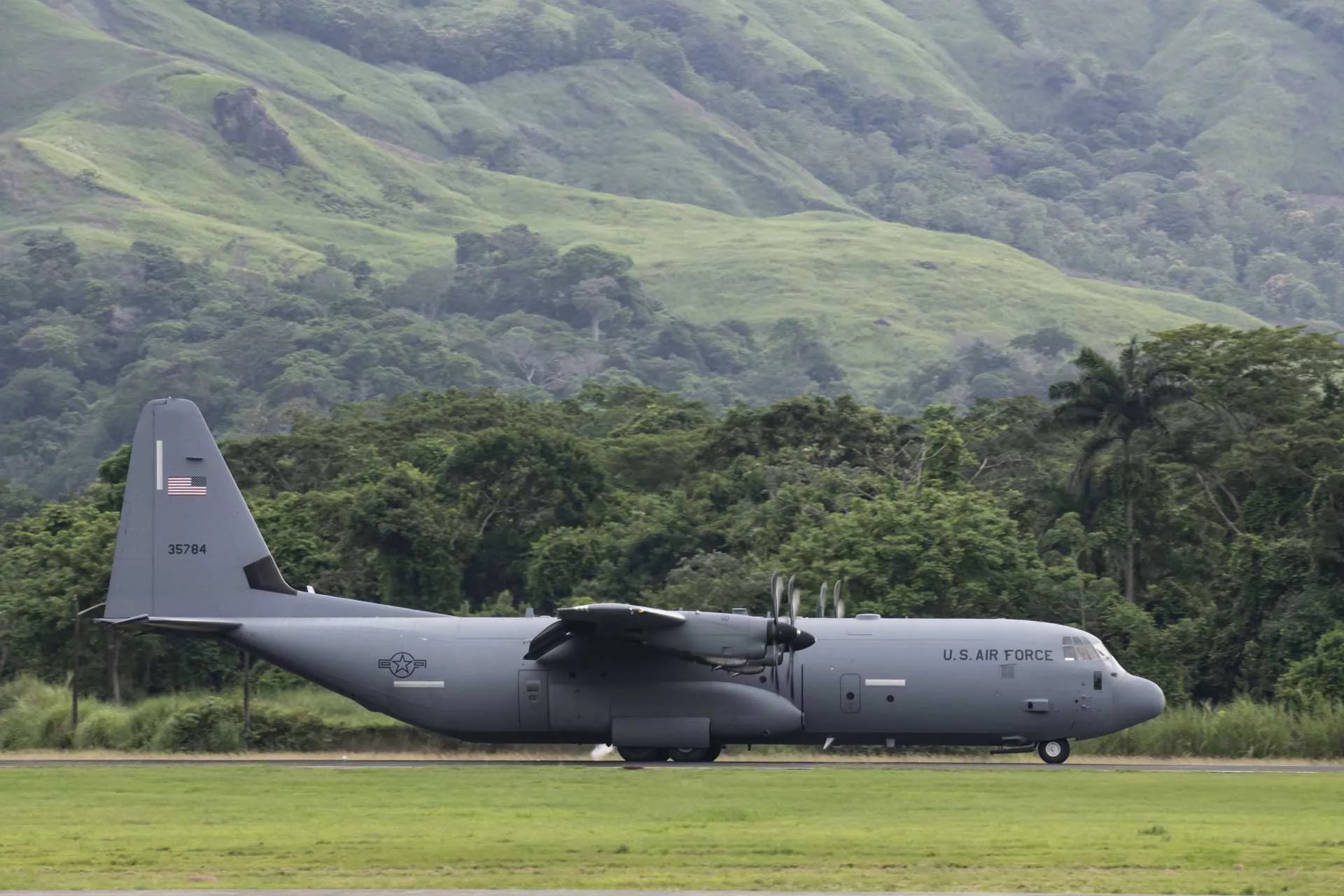ALERT: U.S. Marines from 2d Battalion 2d Marines Arrive in Panama to Conduct Joint Operations
A U.S. Air Force C-130J Super Hercules from the 19th Airlift Wing, Little Rock Air Force Base, Arkansas, arrives at Panamá Pacífico Airfield carrying U.S. Marines from the 2d Battalion, 2d Marine Regiment based in Camp Lejeune, North Carolina.

According to information published by the U.S. Department of Defense on June 1, 2025, U.S. Marines from the 2d Battalion, 2d Marine Regiment (2/2), based at Camp Lejeune, North Carolina, have arrived at Panamá Pacífico Airfield, Panama, as part of a strategic mission to conduct joint training operations and strengthen bilateral military coordination, with the objective of reinforcing security around the Panama Canal and improving regional readiness in response to transnational threats. The U.S. Marines were transported aboard a U.S. Air Force C-130J Super Hercules aircraft assigned to the 19th Airlift Wing from Little Rock Air Force Base, Arkansas. Upon arrival, they were received by personnel from Copals – Compañía Panameña de Aerologistica y Servicios S.A. This deployment is part of a growing U.S.-Panamanian defense partnership, conducted in coordination with U.S. Southern Command to strengthen regional security ties and operational interoperability between the two countries. The arrival of the Marines represents the latest tangible action in a series of strategic military collaborations that underscore Panama’s critical geopolitical role and the enduring relevance of the Panama Canal in U.S. regional defense planning.
The 2d Battalion, 2d Marines, also known as the “Warlords,” is a seasoned light infantry unit with extensive operational history ranging from World War II to modern-day deployments in the Middle East and Africa. Their mission in Panama will focus on joint training, civil-military engagements, and combined operations designed to improve mutual readiness and regional response capabilities. As part of a rotational presence, this initiative ensures rapid deployment options in the event of natural disasters, security threats, or humanitarian crises throughout Central America. The deployment takes place under the foreign policy framework of President Donald Trump’s administration, which has reemphasized hemispheric security partnerships to counteract the expanding influence of rival state actors in Latin America, particularly China. In line with this policy, the U.S. has sought to reinforce ties with strategic allies such as Panama through defense cooperation agreements that respect national sovereignty while supporting shared security interests.
A landmark moment in U.S.-Panama defense relations came in April 2025 when U.S. Secretary of Defense Pete Hegseth and Panamanian President José Raúl Mulino signed a bilateral memorandum of understanding. This agreement grants the United States temporary access to Panamanian-controlled installations along the canal for military training and joint operations, without establishing permanent U.S. bases. The accord reaffirms Panama’s control over its territory and upholds the country’s longstanding neutral status, while expanding its defense collaboration with Washington. Evidence of deepening cooperation includes a series of recent joint exercises. Notably, Panama and the U.S. co-hosted PANAMAX 2025, a multinational training event focused on the defense of the Panama Canal against both conventional and asymmetric threats. The exercise involved command and control simulations, maritime interdictions, and cyber defense operations, reflecting the increasing complexity of threats to global shipping infrastructure.
Additionally, the Central America Security Conference (CENTSEC) 2025 was held in Panama City, gathering senior military leaders from across the hemisphere to address regional challenges such as narco trafficking, transnational crime, and humanitarian emergencies. The arrival of the 2d Battalion, 2d Marines, at this time, marks the operational execution of the broader U.S.-Panama strategic alignment. It confirms the Biden-Trump transition-era policy continuity regarding Latin American security priorities, with Panama being positioned not only as a logistic hub but also as a proactive partner in confronting evolving regional security threats. As these Marines engage in joint exercises and defense cooperation activities, their presence reaffirms the mutual trust and shared objectives that define the U.S.-Panama defense alliance in the 21st century.





